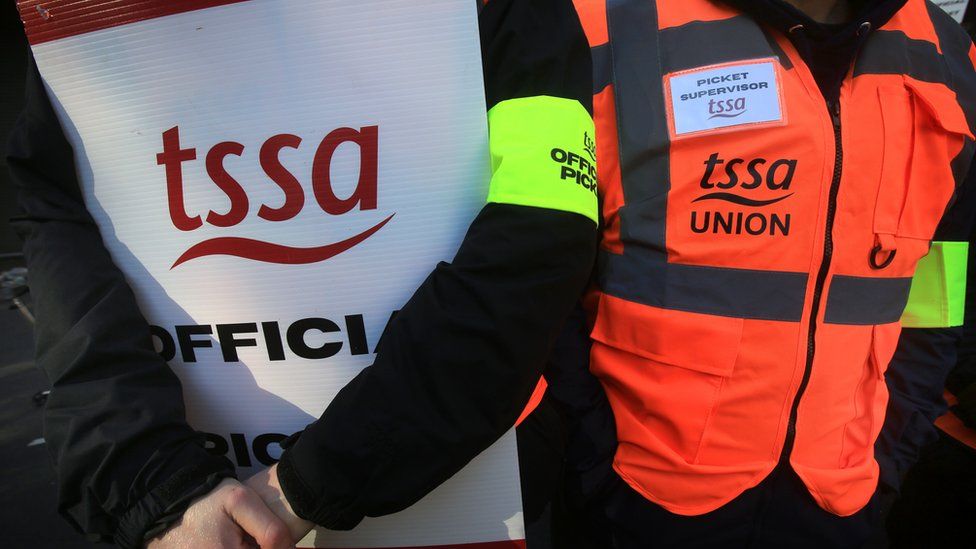TSSA rail union accepts pay deal from train companies
- Published

One of the smaller unions involved in the long-running rail dispute has voted to accept a settlement deal with train companies.
The Transport Salaried Staffs' Association (TSSA) said its 3,000 members had accepted an offer including a two-year 9% pay deal.
In December, the TSSA had accepted Network Rail's offer to settle its dispute with that company.
The union has dropped ballots on further industrial action.
The TSSA is smaller than the both RMT and Aslef unions, which are still in dispute.
The TSSA said it had won an improved pay deal, as well as commitments on job security and full consultation over any possible changes to terms and conditions.
The two-year pay deal will mean a 5% increase in 2022/2023 or a minimum or £1,750, whichever is the greater, and a further 4% the following year.
The agreement also means there will be no compulsory redundancies among certain grades of staff, including station-based workers and all on board staff, until the end of 2024.
There are 14 train companies involved in the agreement, including Avanti West Coast, East Midlands Railway, Govia Thameslink Railway, Greater Anglia, Great Western Railway, Northern Trains Limited, South Western Railway and TransPennine Express.
The TSSA said it continued to oppose the proposed closures of ticket offices.
Earlier this month, the RMT union rejected the rail industry's latest offers.
Network Rail and the train companies' group had called the proposals their "best and final", but RMT boss Mick Lynch said they were "dreadful".
However, a TSSA spokesperson said its members could be "rightly proud of their actions" in the dispute.
"The incredible resolve we have seen from our members has resulted in a significantly improved pay deal over two years, commitments for no compulsory redundancies, improved opportunities for redeployment, as well as full consultation over proposed reforms to ticket offices and any changes to terms and conditions."